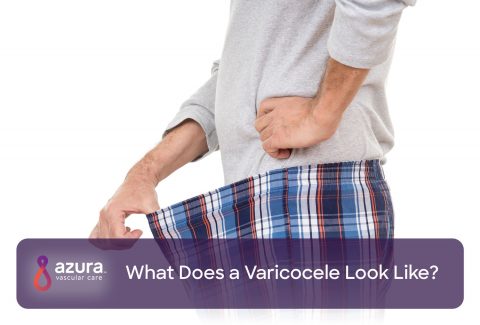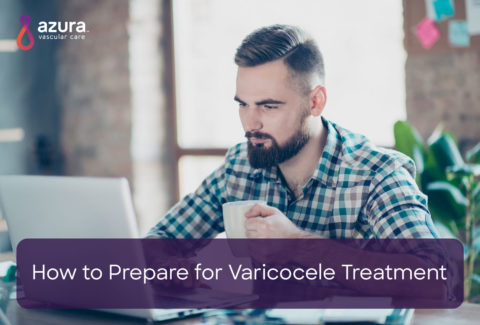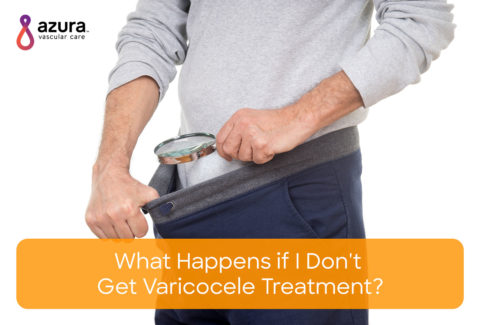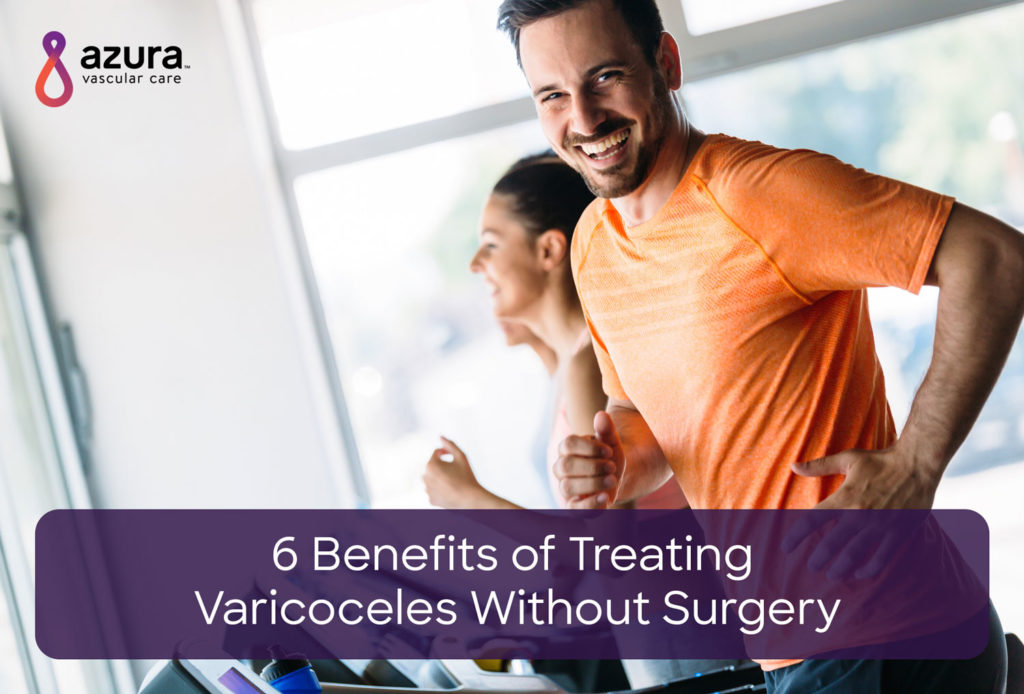
Varicoceles affect roughly 15 percent of males, and is traditionally treated using open surgery, microsurgery, or laparoscopic surgery.(i) Though surgery is the most common way to treat varicoceles, this method comes with a number of risks and potential complications based on the need for general anesthesia and its highly invasive nature.(ii) However, treating varicoceles without surgery offers a long list of benefits that can enhance your recovery and overall well-being.
Here’s a closer look at the benefits of a varicocele treatment without surgery, and why you should choose a non-surgical treatment over traditional surgery.
1. Faster Recovery Time
Recovery from varicocele surgery usually takes between two and three weeks, and can steal valuable time away from important responsibilities such as work, school, family, and your exercise routine. But treating varicoceles without surgery, by using a method like embolization, significantly reduces the amount of time you spend recovering. Varicocele embolization recovery time usually only lasts one to two days, so you can resume your normal everyday life as quickly as possible.
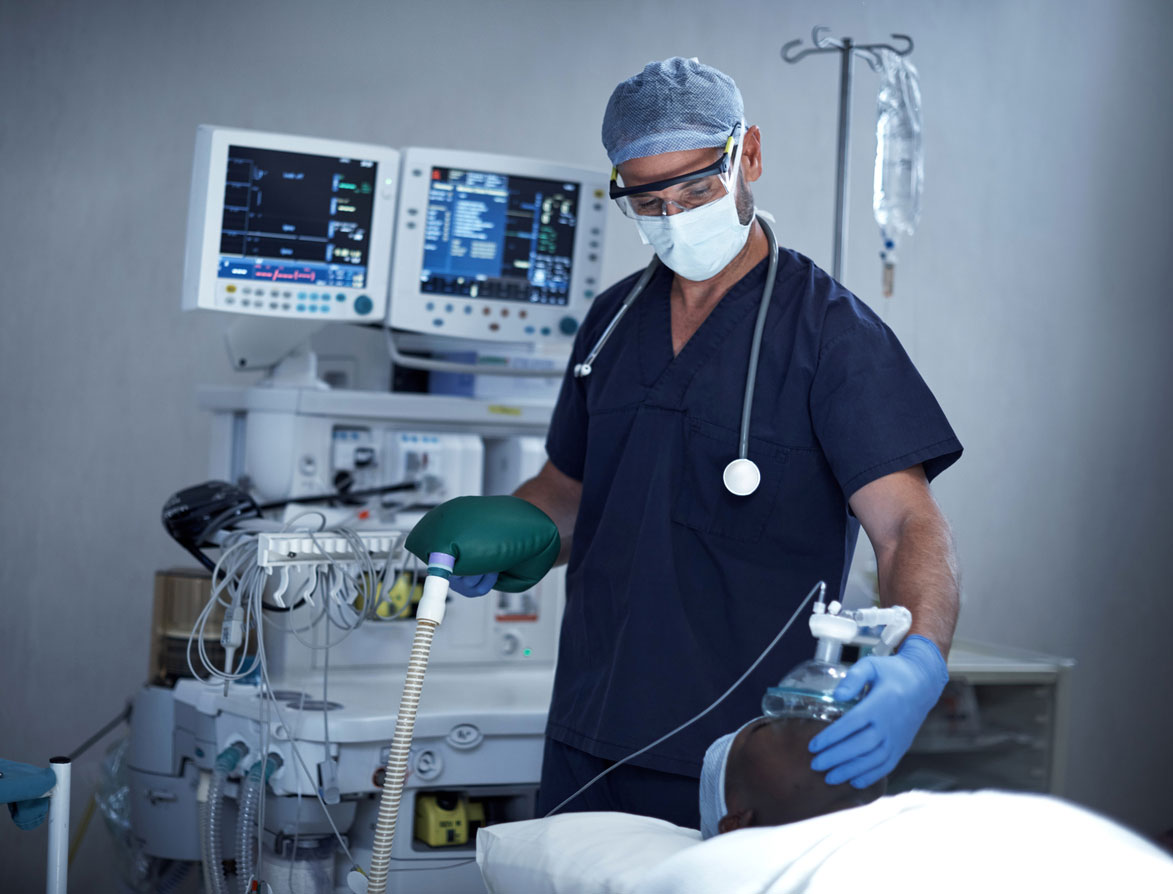
2. No Need for General Anesthesia
Most types of varicocele surgery require you to undergo general anesthesia that affects the whole body and induces a loss of consciousness, linked to a higher number of complications, including nausea, vomiting, sore throat, and delayed return to normal mental functioning.(iii) Treating varicoceles without surgery allows for local anesthesia, which is proven safer and offers fewer risks. Local anesthesia lets you maintain consciousness during the procedure, so you can avoid feelings of mental cloudiness and sedation, and recover more quickly. Moderate sedation is also available for those who do not wish to remain fully conscious for the procedure.
3. No Hospitalization Required
Varicocele surgery normally requires you to stay in the hospital overnight so nurses and doctors can monitor your vital signs and assess for the risk of potential complications. Non-surgical treatments like varicocele embolization, on the other hand, are often performed in an outpatient setting so you can go home the same day and recover in a more familiar, comfortable environment.
4. No Incisions
During varicocele surgery, your doctor makes one or two incisions in your lower abdomen to identify, access, and repair the dysfunctional veins. These incisions almost always result in scarring. For up to six weeks following your surgery, you’ll be expected to carefully monitor and clean your incisions to reduce the risk for infection.(iv) But, treating varicoceles non-surgically by embolization only requires a small puncture site, allowing you to benefit from minimal to no scarring and a lower infection risk.

5. Less Downtime for Physical Activity
Abstaining from exercise and sexual activity are vital to your recovery from varicocele surgery, since these activities can cause strain and tear your incision, which increase the risk for bleeding and infection. Most varicocele surgeons will advise you to put off exercise for up to two weeks following surgery, and to refrain from having sex for one month. But non-surgical treatments, like embolization, allow you to resume exercising within 7 to 10 days, and to resume sexual activity within one to two weeks.
6. Lower Risk
If you’ve been diagnosed with varicoceles, treating your condition using non-surgical methods can greatly reduce your risk for an infection and artery damage.
Varicocele embolization is a non-surgical treatment that can help you avoid potential varicocele surgery complications, relieve painful symptoms and boost your fertility rate without causing hospitalization and weeks of downtime. Varicocele embolization can be performed quickly and conveniently in an outpatient setting, and is usually less costly than surgery and most other treatments.
If you’ve been diagnosed with a varicocele, ask your doctor about whether you’re a candidate for varicocele embolization and other minimally invasive non-surgical treatments. Or, call 866-705-VEIN (8346) today to schedule an appointment with a vascular specialist, and learn more about treating varicoceles without surgery and the benefits of varicocele embolization.
Sources:
i http://www.europeanurology.com/article/S0302-2838(16)30396-7/fulltext
ii https://www.ncbi.nlm.nih.gov/pmc/articles/PMC3433543/
iii https://emedicine.medscape.com/article/1271543-overview
iv https://myhealth.alberta.ca/Health/aftercareinformation/pages/conditions.aspx?hwid=ug3672

